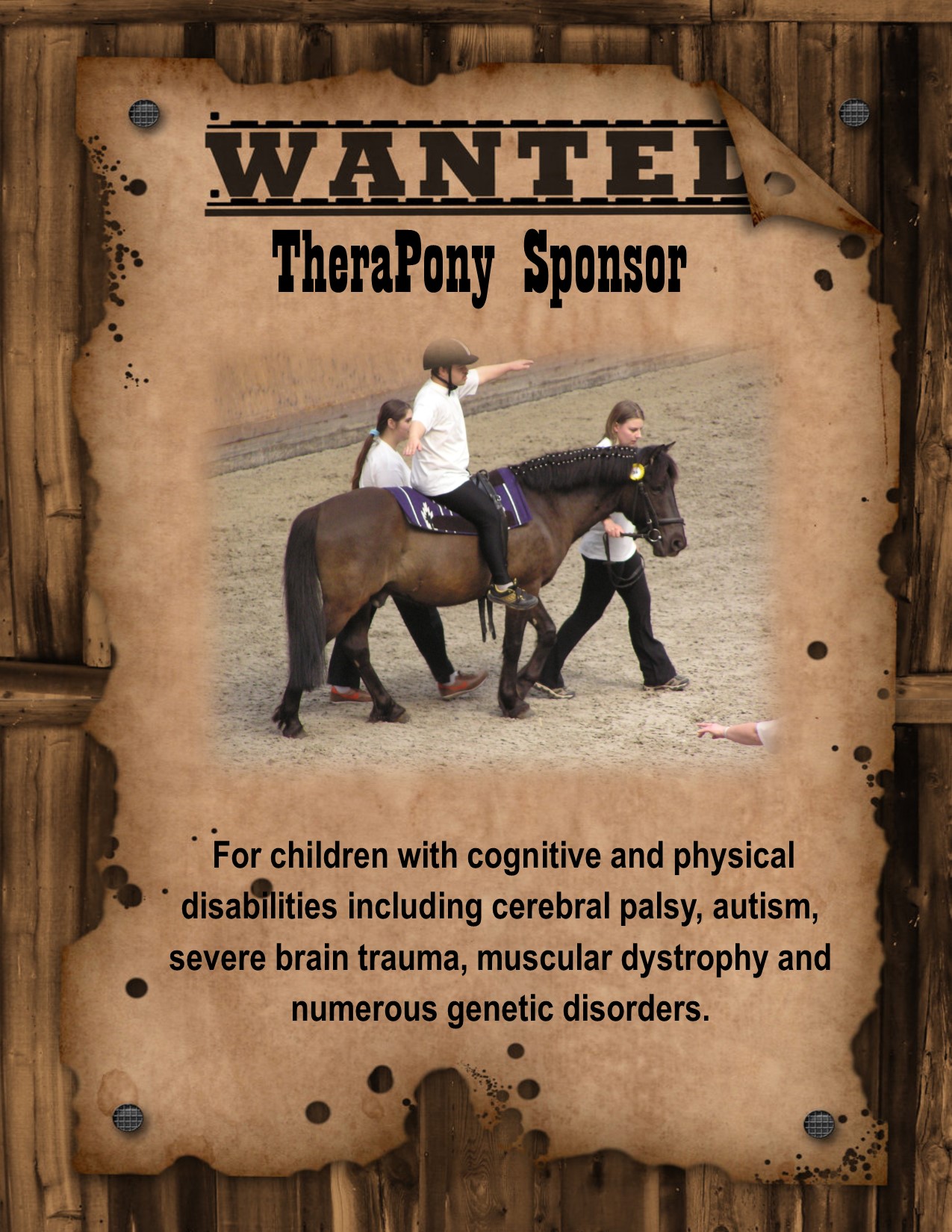Therapeutic riding can benefit individuals with a wide range of challenges including cognitive, physical, emotional, or social issues. Horseback riding for individuals suffering from these challenges allows the rider to have independence and mobility where they may otherwise be restricted. The list of specific challenges and disabilities that can be helped with therapeutic riding is nearly endless, however some of the more prominent disabilities include severe brain trauma, cerebral palsy, autism and muscular dystrophy.
TheraPony is a program specifically designed for children with cognitive and physical disabilities.The rhythmic motion of riding a horse causes the kids to focus on the movement – which is slow, deliberate, and relaxing. The child indirectly learns how to focus better, which is aided by the calming effect of riding.
- In addition to the movement experienced when riding the horse, tactile senses are stimulated. The horse’s skin is fuzzy, the mane and tail are rough, and the nose is soft. Discovery of these sensations often helps draw a child out, stimulating development of his or her verbal communication and interest in other physical objects.
- Motor skills are also developed as the child learns to ride, and eventually groom and tack. These new skills, and the child’s continued improvement upon them, increase their self-confidence, which increases their desire and willingness to learn skills at home and/or at school. Learning is no longer scary, but fun, interesting and rewarding.
- A child’s ability to interact socially is often improved as well. The therapy sessions teach the child how to interact with the counselor and staff people. Not only are basic communication and motor skills improved, but many children experience improvements in their overall moods. Children who before experienced angry outbursts or who rarely smiled are suddenly calmer, and smile more readily and frequently.
